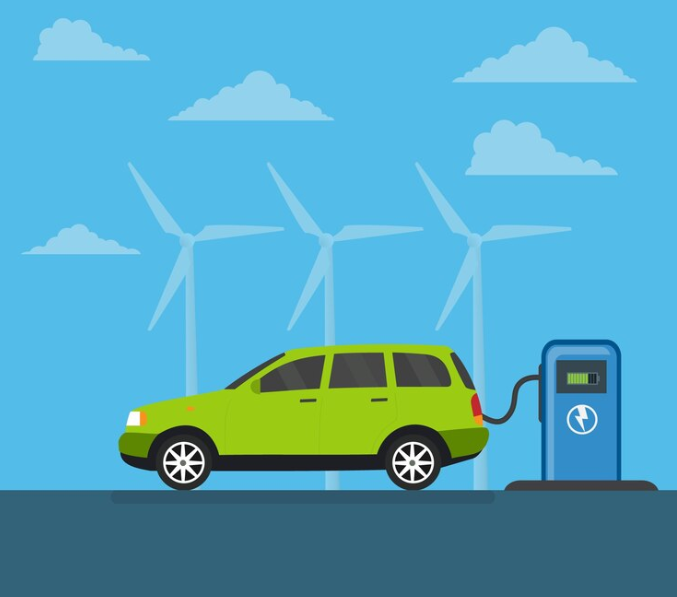Hydrogen Fuel and Renewable Energy: A Perfect Partnership
The future of clean energy is rapidly evolving, and one of the most exciting developments in this space is the partnership between hydrogen fuel and renewable energy. As the world grapples with the challenge of reducing carbon emissions, these two technologies are emerging as a perfect match to not only power our economies but also pave the way toward a sustainable and low-carbon future. Let’s explore how hydrogen fuel and renewable energy complement each other and why they are the backbone of the green energy revolution.
- The Need for Clean, Sustainable Energy Solutions
As we push toward a more sustainable world, the reliance on fossil fuels has to decrease drastically. The renewable energy sector, which includes solar, wind, hydro, and geothermal power, is growing rapidly, but it faces a common challenge: intermittency. Hydrogen fuel for the future offers a reliable solution for energy storage, helping solve the unpredictability of power generation and ensuring a consistent, sustainable energy supply.

- Hydrogen Fuel as Energy Storage: One of the greatest advantages of hydrogen is its ability to store excess energy generated by renewable sources when demand is low. For instance, during a sunny day or a windy period, renewable energy can be used to produce green hydrogen through a process called electrolysis. This hydrogen can then be stored and used later to generate electricity or even power vehicles when the sun isn’t shining or the wind isn’t blowing.
- Green Hydrogen: A Zero-Carbon Solution
When produced using renewable energy, hydrogen is known as green hydrogen. This type of hydrogen is produced through electrolysis, where electricity from renewable sources splits water into hydrogen and oxygen, with no carbon emissions in the process. Unlike traditional hydrogen production, which relies on fossil fuels and produces significant CO2 emissions (called grey hydrogen), green hydrogen offers a clean and sustainable alternative.
- Key Role in Decarbonizing Industries: Green hydrogen can be used in sectors that are traditionally hard to decarbonize, such as heavy industry, transport, and power generation. For example, it can replace fossil fuels in the steel and chemical industries, powering hydrogen fuel cells for trucks and buses, and even helping power electric grids during peak demand times. This makes it an essential tool in the fight against climate change.
- Hydrogen Fuel’s Role in a Renewable-Powered Future
The partnership between hydrogen fuel and renewable energy is not only a technological innovation—it’s a strategic collaboration for a sustainable future. Here’s how they work hand in hand to accelerate the transition to clean energy:
- Grid Stability and Flexibility: Hydrogen helps stabilize power grids that rely on intermittent renewable sources. When renewable energy production exceeds demand, excess energy is used to produce hydrogen. When demand outstrips supply, hydrogen can be converted back into electricity, ensuring a steady supply of power.
- Decentralized Energy Systems: As hydrogen can be produced locally from renewable sources, it offers a decentralized approach to energy production. Communities can generate, store, and use hydrogen without being dependent on centralized fossil fuel-based power plants. This decentralized model enhances energy security and reduces transmission losses, especially in remote areas.
- Transforming Transportation: Hydrogen-Powered Mobility
One of the most promising applications of hydrogen fuel is in the transportation sector, where it can help reduce emissions from vehicles, especially in heavy-duty transportation. Hydrogen fuel cells are already being used in vehicles such as buses, trucks, and trains, offering a clean alternative to diesel and gasoline.
- Fueling the Future of Transport: Hydrogen-powered vehicles offer faster refueling times and longer ranges compared to battery-electric vehicles, making them ideal for long-haul trucking, public transit, and even shipping and aviation. By partnering with renewable energy, hydrogen fuel can be produced in an eco-friendly manner, powering the transportation industry while reducing global carbon footprints.
- The Economic Benefits of the Hydrogen-Renewable Partnership
The collaboration between hydrogen and renewable energy also presents significant economic opportunities. As governments and private sectors invest in these technologies, they are driving innovation, creating jobs, and fostering new industries. Here’s how:
- Job Creation: The hydrogen and renewable energy sectors are generating employment opportunities across a wide range of industries, including manufacturing, engineering, and research and development. According to the International Renewable Energy Agency (IRENA), the hydrogen sector could create up to 30 million jobs by 2050.
- Investment Growth: Countries that lead in renewable energy and hydrogen production stand to gain economic advantages, attracting investment, fostering industrial growth, and becoming leaders in the global clean energy market. Government incentives and private sector investments are fueling a boom in hydrogen infrastructure, including production plants, storage facilities, and distribution networks.
Conclusion: A Bright Future for Hydrogen and Renewable Energy
Hydrogen fuel and renewable energy are undoubtedly a perfect partnership for a sustainable and decarbonized future. Together, they offer solutions to some of the most pressing challenges in the energy sector, including intermittency, emissions, and energy security. By enabling efficient energy storage, powering industries, and transforming transportation, they are positioning themselves as the key enablers of the clean energy transition.
As hydrogen production technologies continue to evolve and economies scale up green hydrogen production, this partnership will only grow stronger, creating new opportunities for a cleaner, greener, and more resilient energy system. For those ready to embrace the future, hydrogen fuel and renewable energy offer the path forward—one that is sustainable, profitable, and transformative.




